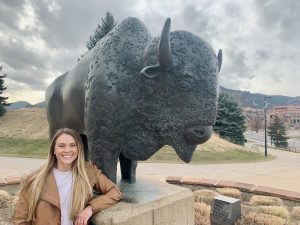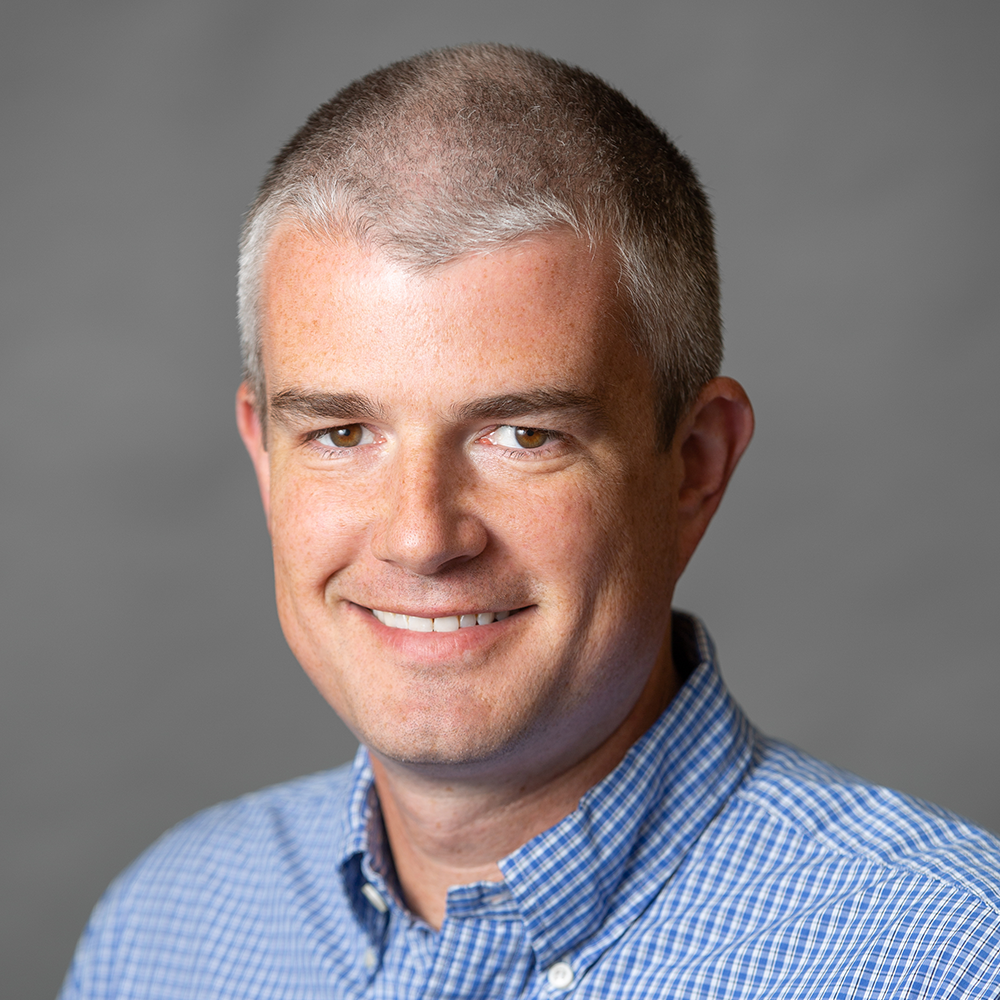How one woman’s journey into the world of science began with a transformative experience at HudsonAlpha’s Code of Life summer camp
By: Emily Adelman
When I was eight years old, I dreamed of becoming an astronaut. Four years later, after watching a movie, I decided space was not my goal anymore, I would become an art curator instead. At 18, I changed my mind again and pursued journalism. Sitting here nearly ten years later, I still don’t know what I want to be when I grow up.
It was the opposite career path for Maria Coffman.
“I remember coming home from camp and telling my parents: this is so cool. I want to do this. This is it, I found it,” Maria remembered. She was talking about biology, after participating in HudsonAlpha Institute for Biotechnology Educational Outreach’s Code of Life Camp. “From that point on, I started choosing classes that I was interested in that were along those subject lines.”
The goal of the Code of Life summer experience is to introduce young students to the concept of DNA. These young scientists extract DNA from various organisms, learn how that information in your DNA controls physical traits, and investigate how changes in DNA may cause symptoms of some genetic disorders.
“I just loved science, and I still do,” Maria said with a fond smile on her face.
Since that experience, Maria took any science class she could get her hands on. She received her Bachelor’s degree in biology from the University of Alabama in Huntsville and a Master’s in biochemistry from the University of Florida. She took supplemental computer science and chemistry classes because she just loves learning.
“And now we’re here,” she said, explaining what she is working on now. “I am getting my PhD at University of Colorado Boulder in integrative physiology,” Maria said. “I am doing a lot of work with the gut microbiome and metagenomics. All of those fun things I learned about as a camper are coming back into my life.”
Nearly 15 years after her introduction to biology, Maria still remembers the moment she learned about her options for her future; it was on HudsonAlpha’s campus, where Code of Life was taking place. “Seeing everyone around me, what they were doing and thinking, ‘I really like biology and genomics.’ I realized people were doing a lot of things on computers, like writing code,” she said. “I didn’t know you could even do that, so getting exposed to that at an early age was really special.”
Code of Life was instrumental in shaping how Maria saw science and a career in the field. “I never got exposed to that in school,” she said when talking about bioinformatics and genetics. “Everyone would talk about if you go into science, then you should become a medical doctor, which is the natural progression,” Maria mentioned. “I knew I didn’t really want to do that. Code of Life helped me have a different perspective on science and realize there isn’t just one career path for all kids that love biology.”
As for her career path, Maria says she is going to pursue a career in industry after finishing up her thesis. She is looking at environmental exposures like air pollution, plastics, chemicals, PFAS, and their impact on the gut microbiome and metabolism.
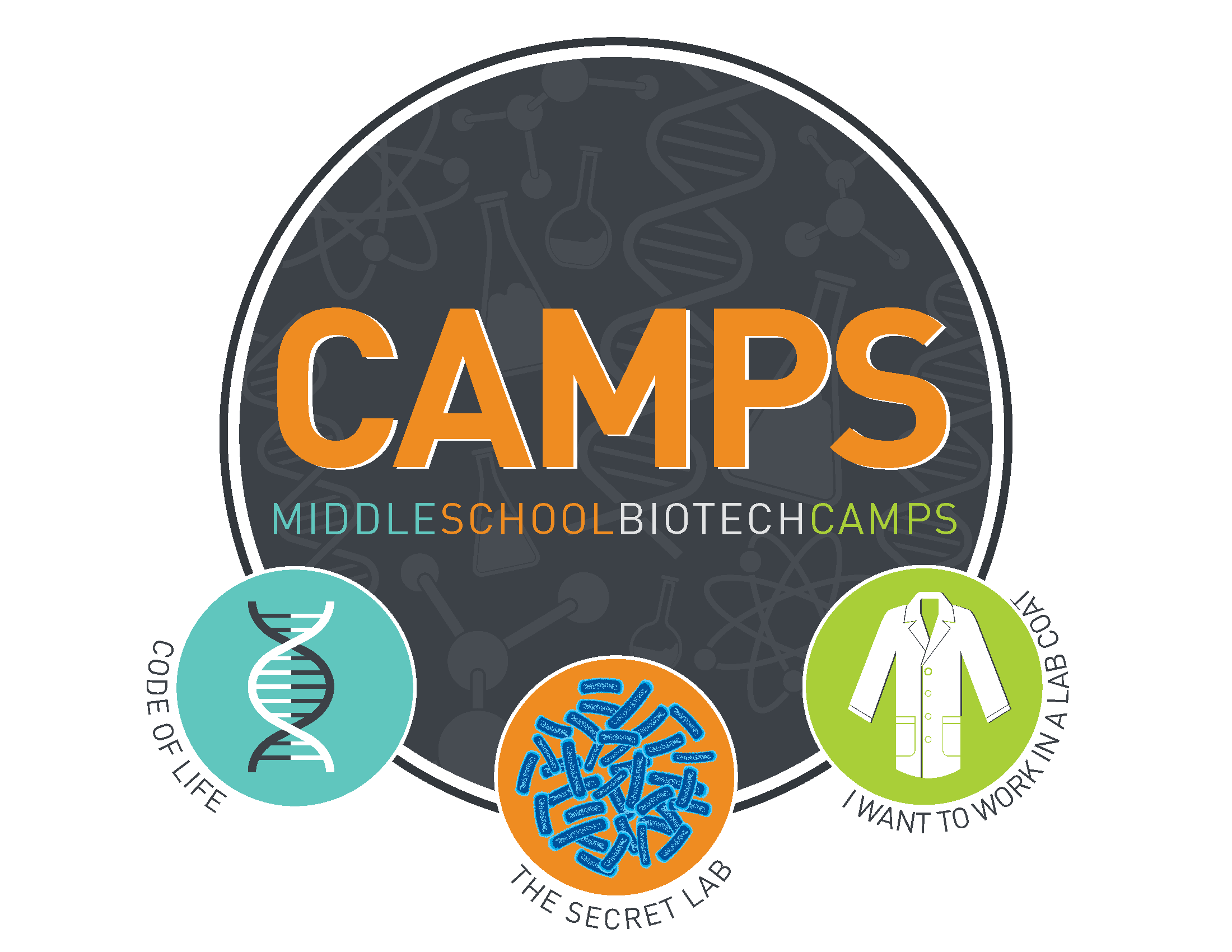
While it is a specific area of research, Maria hopes her decisions during her studies pave the way for a dynamic future. “I’ve tried to learn a broad range of methods in genomic processing that could be applied to not just gut microbiome samples but humans or animals as well,” she said. “I’m thinking of staying in that bioinformatics and genomics world, but expanding to a different host organism.”
While working on that career plan, Maria got the chance to relive her Code of Life days as an adult. “I remember doing DNA extractions in camp, so I went in and did a DNA extraction for one of my studies. That was when I was like, ‘Oh, I have to recreate this picture.” Maria said. The older photo features Maria and one of her camp friends extracting DNA from Code of Life more than 10 years ago. Maria recreated that photo with one of her colleagues, extracting DNA.
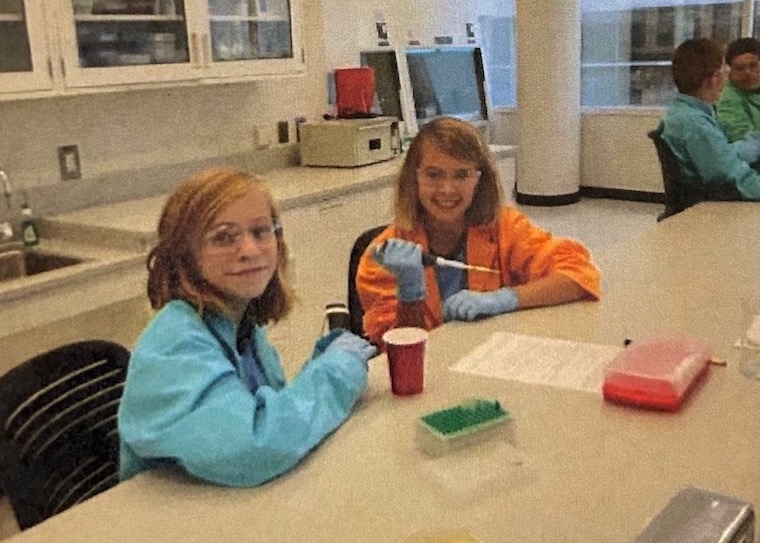
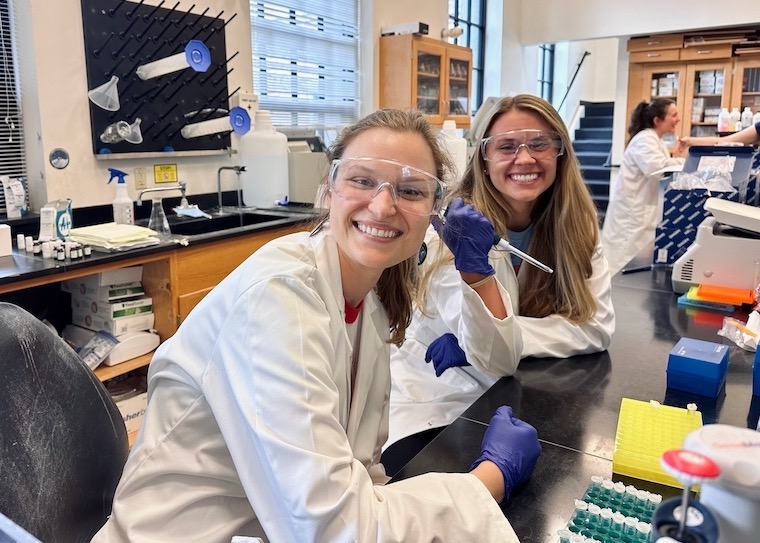
Code of Life not only shaped Maria’s scientific perspective but also empowered her to break gender stereotypes in STEM fields.
“I think a lot of women in STEM have that intimidation factor of ‘I can’t be a data scientist, that’s a boy’s job. They’re going to be better at it, they’re going to be smarter,’” she said. “I think it’s about telling yourself you can do that, you are just as smart. You have to apply yourself and hae that confidence to go through with what you really want to do. Don’t let the boys scare you away.”
It’s clear participating in Code of Life had a serious impact on Maria, and she’s thankful for her experience. Without it, she would not be where she is today.
“I just really appreciated participating in [Code of Life] and getting exposed to the career field that I am 20 years deep into,” Maria said. “It really made a difference.”

